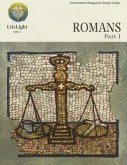An unbelieved truth can hurt a man much more than a lie. It takes great courage to back truth unacceptable to our times. There's a punishment for it, and it's usually crucifixion. - John Steinbeck, East of Eden The resurrection of Jesus is, of course, the most important event for Christians, yet the events that led up to it are almost as important. According to all the biblical sources and a wide variety of non-biblical texts, Jesus was put to death because the message he brought threatened the powerful of his era. There are many more nuances than that, of course, and lots of ways one can spin the story to make one's point, but the simplest truth is that the gospel message was too toxic for the imperial stomach to bear. While exploring the biblical stories about the death of Jesus, it is good to ask the larger question hanging in the background of all this drama: Why did Jesus die? In his book Speaking Christian, Marcus Borg points out that the idea of substitutionary atonement - the idea that Jesus had to die to "atone" for our sins - is a late development in theological history; its first appearance is in 1097, a thousand years after the writing of the Christian Bible. Borg points out that the meaning of Jesus' death becomes distorted if one assumes that it was necessary and required. Contrary to atonement theory, scripture provides stronger responses to the question of why Jesus died. His message was revolutionary and a threat to the religious and political powers of the day. Talk of loving one's neighbours, of treating people as if they matter, of seeking forgiveness and new ways of being accountable to one another - these values do not encourage faithfulness to empire. Jesus' message was directly counter to the values that the government promoted. For them, there was no question but that Jesus had to be extinguished... Similarly, the religious powers found their established order threatened. Jesus' theme of God's involvement in the world on behalf of the marginalized (specifically, foreigners, women, tax collectors, children, etc.) was a major challenge to the religious order of the day. It had to be stopped...







